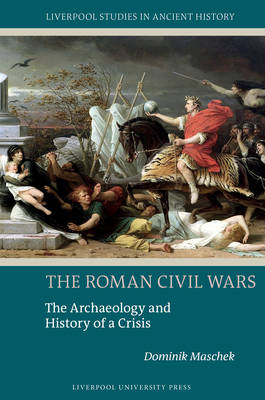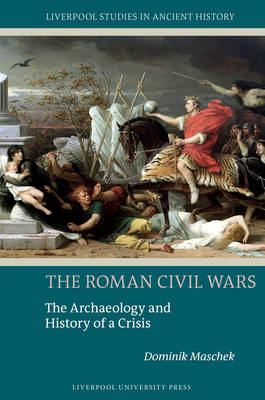
- Afhalen na 1 uur in een winkel met voorraad
- Gratis thuislevering in België vanaf € 30
- Ruim aanbod met 7 miljoen producten
- Afhalen na 1 uur in een winkel met voorraad
- Gratis thuislevering in België vanaf € 30
- Ruim aanbod met 7 miljoen producten
Omschrijving
The late Roman Republic was characterized by severe crises, ranging from the time of the Gracchi to the Battle of Actium and finally ending with the Principate of Augustus. Individual military leaders such as Marius, Sulla, and Pompey acquired so much power that the internal cohesion of the Republic was shattered. The Roman state descended into civil war. By drawing upon a range of case studies, from monumental building to public dining, Dominik Maschek demonstrates that the harsh realities and disruptions of civil war were intimately bound up with growing wealth and prosperity: on the one hand, they were fueled by the increasing complexity of urban life and conspicuous consumption which gave rise to greed and violent appropriation; on the other hand, by the forceful and premature promotion of new 'controlling generations', they also played a vital role in conditioning the worldviews and socio-cultural norms that regulated the use of material culture. Drawing upon the latest advances in Roman archaeology and history, Dominik Maschek uses buildings and images, as well as rituals and acts of state, to analyze these structural underpinnings and the impact of the late Republican civil wars and for the first time offers an overall interpretation of their cultural history.
Specificaties
Betrokkenen
- Auteur(s):
- Uitgeverij:
Inhoud
- Aantal bladzijden:
- 432
- Taal:
- Engels
- Reeks:
Eigenschappen
- Productcode (EAN):
- 9781836243380
- Verschijningsdatum:
- 11/04/2025
- Uitvoering:
- Hardcover
- Formaat:
- Genaaid
- Afmetingen:
- 156 mm x 234 mm
- Gewicht:
- 775 g

Alleen bij Standaard Boekhandel
Beoordelingen
We publiceren alleen reviews die voldoen aan de voorwaarden voor reviews. Bekijk onze voorwaarden voor reviews.









